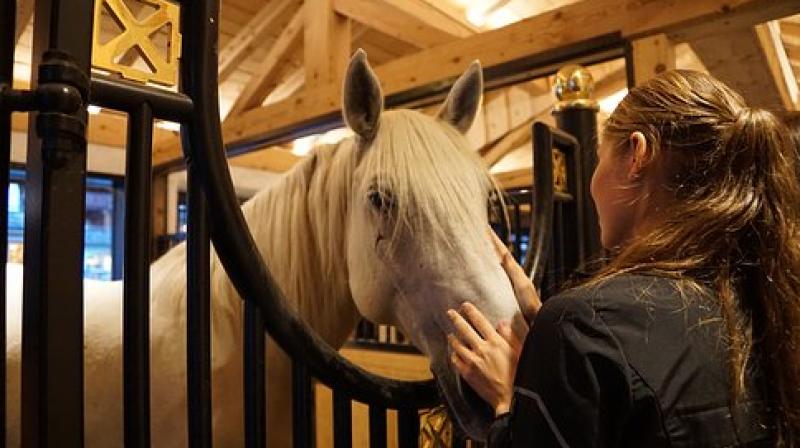Horses can differenciate between dominant, submissive body lamguage in humans: Study
The findings enhance our understanding of how animals can communicate using body posture across the species barrier.

Horses can tell the difference between dominant and submissive body postures of humans, even when they are not familiar with a person, a study has found.
The findings enhance our understanding of how animals can communicate using body posture across the species barrier and are specifically helpful for informing horse handlers and trainers about the ways horses perceive human body language.
Researchers from University of Sussex in the UK worked with 30 domestic horses. They recruited horses at three equestrian centres.
All the handlers were women, dressed in similar clothing and of similar size. A dark neck warmer covered their faces to eye level to minimise facial expression cues.
The horses, who had previously been fed by two people, were given a free choice to approach either the person displaying the dominant or the submissive body posture.
Over the course of four trials it was found that horses showed a preference for approaching the person displaying the submissive body posture, rather than showing a preference for an individual handler or a particular side, researchers said.
The team noted whether the horses were more likely to approach a person displaying a dominant body posture - involving the person standing straight, with arms and legs apart and chest expanded - or a submissive posture - slouching, keeping arms and legs close to the body, relaxed knees.
The study, published in the journal Animal Cognition, found that even though the horses had been given food rewards previously by each person when in a neutral body posture, they were significantly more likely to approach the individual displaying a submissive rather than a dominant posture in follow-up trials.
"Horses are often thought to be good at reading human body language based on anecdotal evidences," said Amy Smith from University of Sussex.
"However, little research has tested this empirically. These results raise interesting questions about the flexibility of cross-species communication," Smith said.

